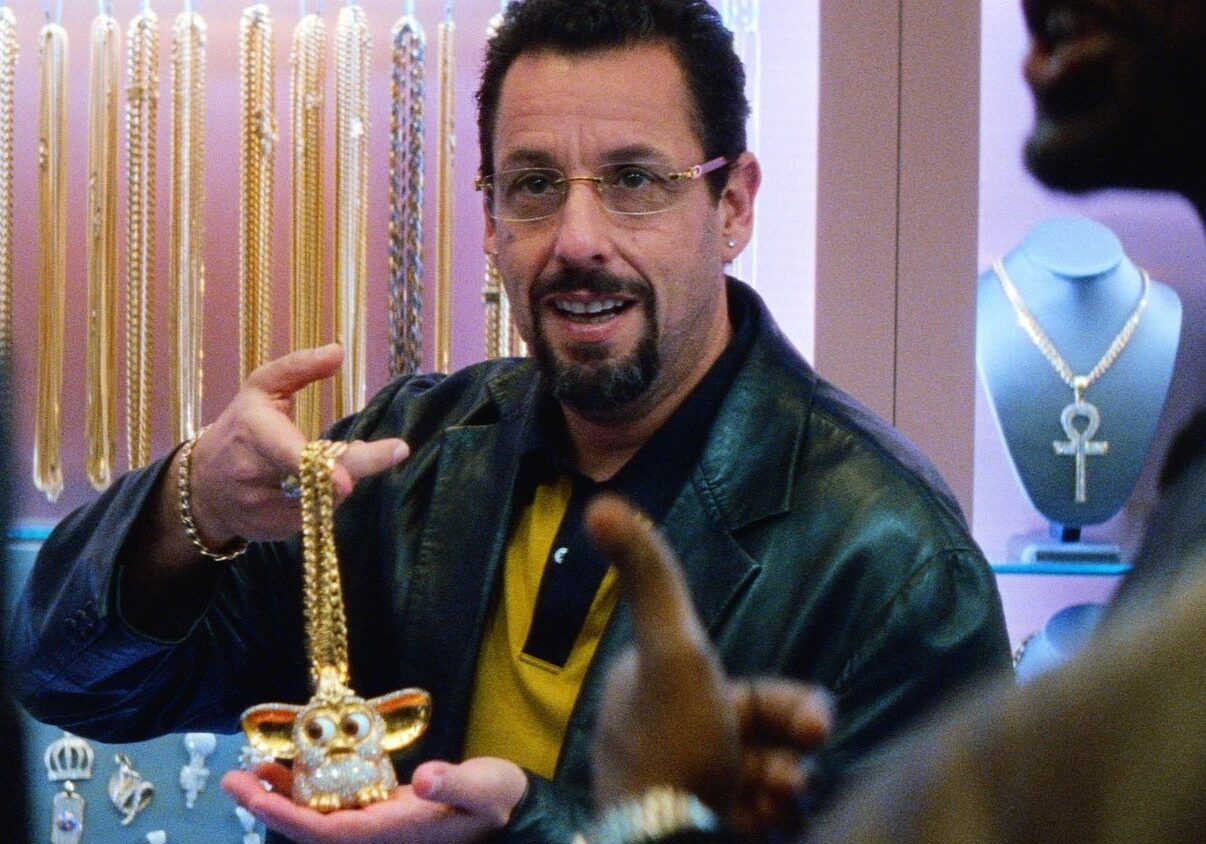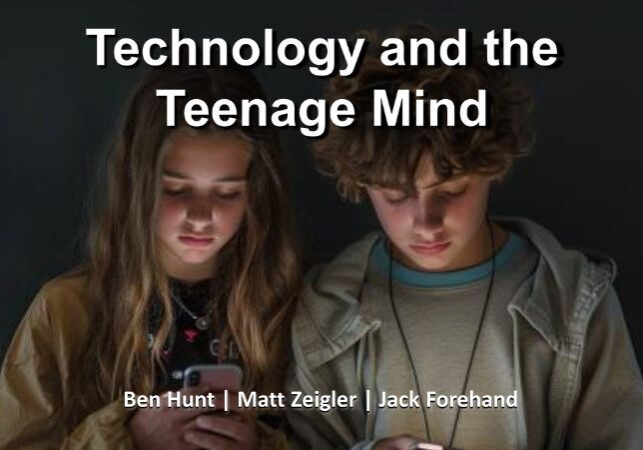The People are Revolting
To learn more about Epsilon Theory and be notified when we release new content sign up here. You’ll receive an email every week and your information will never be shared with anyone else.
Continue the discussion at the Epsilon Theory Forum
The Latest From Epsilon Theory
This commentary is being provided to you as general information only and should not be taken as investment advice. The opinions expressed in these materials represent the personal views of the author(s). It is not investment research or a research recommendation, as it does not constitute substantive research or analysis. Any action that you take as a result of information contained in this document is ultimately your responsibility. Epsilon Theory will not accept liability for any loss or damage, including without limitation to any loss of profit, which may arise directly or indirectly from use of or reliance on such information. Consult your investment advisor before making any investment decisions. It must be noted, that no one can accurately predict the future of the market with certainty or guarantee future investment performance. Past performance is not a guarantee of future results.
Statements in this communication are forward-looking statements. The forward-looking statements and other views expressed herein are as of the date of this publication. Actual future results or occurrences may differ significantly from those anticipated in any forward-looking statements, and there is no guarantee that any predictions will come to pass. The views expressed herein are subject to change at any time, due to numerous market and other factors. Epsilon Theory disclaims any obligation to update publicly or revise any forward-looking statements or views expressed herein. This information is neither an offer to sell nor a solicitation of any offer to buy any securities. This commentary has been prepared without regard to the individual financial circumstances and objectives of persons who receive it. Epsilon Theory recommends that investors independently evaluate particular investments and strategies, and encourages investors to seek the advice of a financial advisor. The appropriateness of a particular investment or strategy will depend on an investor’s individual circumstances and objectives.









"In the meantime, however, I have a question and a challenge: give some thought to your philosophies as investor and citizen. Think about your most passionate views which began as earnest, scientific, fact-based beliefs. Think about some of those beliefs which encountered resistance. How did you respond? Did you change the way you told the story about them? In doing so, did your beliefs slowly become abstractions of the real thing you believed in originally?
My free market / capitalism / libertarian leans, which developed out of a reasonable, to my mind, understanding of my economic and history studies in my school days and early work years (with real-world experience confirming book learning) hardened in my later twenties into Randian absolutism, in part, owing to equally strident resistance from the all-around-me liberal New Yorkers.
(One of the great misconceptions - a false meme - is that Wall Street is populated by all hard-core conservatives and libertarians; whereas, the reality is that there’s always been a meaningful population of liberals on the Street, which, IMO, has increased in percentages over the past three decades.)
After spending a decade in my mid twenties to mid thirties building Fort Libertarianism with a Randian moat around my ideology, I realized I had let passion replace reason and have been trying, ever since, to reverse course and let reason replace passion.
The challenge is that few people today want to have a reasoned, nuanced conversation about these type of ideas - those on the right think you’re “squishy” or not a “true believer,” while those on the left either are angry that you don’t fit into an ideological “right” box that they are familiar with (and have set arguments against) or use any “concessions” you make as evidence your entire philosophy is a fraud.
Said another way, having a thoughtful, rational and reasoned conversation with a passionate believer - someone on either side whose ideas are “abstractions of the real thing -” is frustrating and has had me pulling away from interactions with others.
So, while I believe (or am kidding myself) that I’ve moved past my “abstractions of the real thing” phase, I’m finding that while it is helping me grow as a person, it is also causing me to grow further away from other people.
I love this post Rusty! Thanks for pointing out the difference between climate change and all the policy memes that swirl around it. There is so much to uncover here with clear eyes and a warm heart that I am so glad to have joined the pack.
I was actually meaning to write you via email and ask if you could do a Quid cloud of the climate change! meme. I did some Google Trends analysis on the subject and it looked like the number of searches was down significantly and I wondered if your Quid software was seeing the same things.
Great conversation…
Any change will reduce the paper output, and they don’t want this. It’s not institutional pressure that creates this resistance, it’s that scientists/experts themselves don’t want to move their butts.
Noise reduction
The new findings led the researchers to hypothesize that when people get very good at a task that requires complex computation, the noise will become smaller and less detrimental to overall performance. That is, people will trust their computations more and stop relying on averages.
“As it gets easier, our prediction is the bias will go away, because that computation is no longer a noisy computation,” Jazayeri says. “You believe in the computation; you know the computation is working well.”
Causes:
Cords of a very good song…
Maybe it’s time to let the old ways die
It takes a lot to change a man
Hell, it takes a lot to try
That last line is the most important…
“In the meantime, however, I have a question and a challenge: give some thought to your philosophies as investor and citizen. Think about your most passionate views which began as earnest, scientific, fact-based beliefs.”
Losing GOP States Try To Lock In Power Before Democrats Take Over
Two years ago, North Carolina set the precedent for this kind of move, when the Republican-controlled legislature stripped then-incoming Democrat Roy Cooper’s power over Cabinet appointments, made the state’s judicial system more partisan, and ensured that the state’s board of elections would be controlled by Republicans in election years. Cooper has been in legal fights over the changes since.
Now Republicans in Wisconsin and Michigan are playing by the same book.
“We simply cannot and are inherently ill-equipped to predict how people will respond to an incredibly complex set of climate change outputs that will manifest in changing prices for real estate, agricultural commodities and labor, even before we consider any explicit policy action.”
Yes, its across the full spectrum of belief and policy!
…After this, there is no turning back. You take the blue pill—the story ends, you wake up in your bed and believe whatever you want to believe. You take the red pill—you stay in Wonderland, and I show you how deep the rabbit hole goes. Remember: all I’m offering is the truth.
The interesting thing about the climate debate is the idea that somehow a warming planet is a disaster, especially for agriculture. Higher CO2 concentrations in the atmosphere increase plant productivity. Is it a coincidence that crop yields are at record levels in conjunction with the highest carbon dioxide levels since the end of the last glacial period of the current ice age and the warmest temperatures of the past 600 years? As someone who has farmed in Maryland and south Georgia, let me say that I was able to grow far more forage to feed my dairy cows in the warm climate of Georgia than in the short growing season of Maryland. The average annual temperature in south Georgia is about 12 degrees F higher than Maryland. Even the worst case scenarios of climate change don’t predict a 12 degree warming.
Of course climate change is real. It’s happens with or without humans. But warming is preferable to cooling. The inevitability that “Winter is coming” brings a sense of doom and dread to the people of Westeros. Maybe our meme should be “Summer is coming” or “Winter is not coming” perhaps. The real disaster will be, as Grantham notes, will be running out of fossil fuels before we find a better source of energy than wind and solar.
Respectfully, I think you may have missed something in the Grantham piece. He doesn’t postulate that the real disaster will be running out of fossil fuel before better energy sources are found. In fact, he stipulates that new wind and solar plants have already achieved economic superiority to existing coal and nuclear (even assuming the latter’s initial capex is already paid-off).
He also doesn’t mention increased CO2 as a direct threat to agriculture (because, I suppose, he knows it’s not). Rather, he postulates that topsoil erosion (stemming from a combination of existing use and climate-related causes), diminishing productivity gains from fertilizer, loss of fertile land to sea level rise, and to a lesser extent the collapse of pollinators and competition from C4 weeds, may all combine to flatten or reduce global food supplies at roughly the moment we hit peak population. The resulting tension (mass migrations, aridification, and global demand for higher standards of living) may cause quite a few “disasters” that are quite apart from the direct perceptional experience of living our present lives a few degrees warmer.
It’s not an existential threat, because humans are remarkably adaptable and ingenious, but why make the planet so much less hospitable to ourselves and go through the awful process of adjusting to that when alternative paths exist at affordable costs?
Yes there are lots of threats to agriculture in the future and Grantham makes good points. Soil erosion is controlled easily with the proper tillage techniques so that doesn’t scare me. What really worries me is the depletion of the mined macronutrients, specifically potash and phosphate. That’s a serious problem.
The benefits of warmer temperatures far outweigh the negatives for total production. As warmer temps spread toward higher latitudes the growing season will lengthen by weeks, enabling double cropping on tens of millions of acres. Even if yields were slightly lower per acre, two crops give you much more food then one.
What struck me was the “They’re Doing It Wrong” reaction by the NYT given that there was no spokesperson(s) for the protesters:
“But when the government tried to open talks, there was no one to talk to. Some unofficial interlocutors appeared but were pulled back by threats from other yellow vests. So Mr. Macron and Prime Minister Édouard Philippe were left with no choice but to retreat…”
Maybe the NYT was nonplussed and annoyed by their inability to determine label the protest or tell the story through the individual(s), but it strikes me as an interesting dilemma for the Macron administration as it precludes the strategy of divide and conquer. Speaking to the leaders of the protests provides the opportunity to co-opt or intimidate the group through the individual(s) to minimize the changes offered to appease the protesters. The individual can be turned either by the carrot (becoming an elite or having their particular grievance addressed) or the stick (detainment or worse). After the individual is turned, they are used to placate or cow the group. Centralization, even among protesters, provides authoritarians a means of control.
This seems to dovetail nicely with Alex Gladstein’s thoughts around the potential use of blockchain as an anti-authoritarian technology , as long as leadership is distributed, there is limited ability to capture and control the protest. While it seems inevitable a charismatic leader will emerge to continue the old system with new faces, distributed leadership might delay the process or offer a path to maximizing change until the critical mass of the protest is lost.
Great note — but to your last paragraph; very hard for typical individuals to carry around or know proof of everything they say; some stuff just is too time consuming to study. WHo has time after work and kids to study everything that’s going on? It’s a meme now but the $400 in the bank stat is kind of real. Maybe retirees and older people have time for this? Yet I don’t see many inspirational, learned and wisemen, wisewomen, elders, “chiefs” or “uncles” around me. Mostly they don’t have a clue either. Is the choice be a specialist or just shut up?